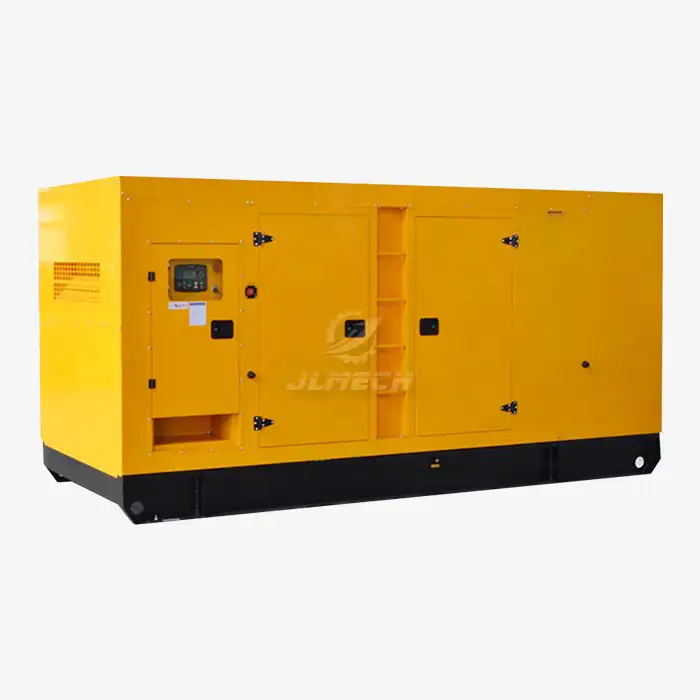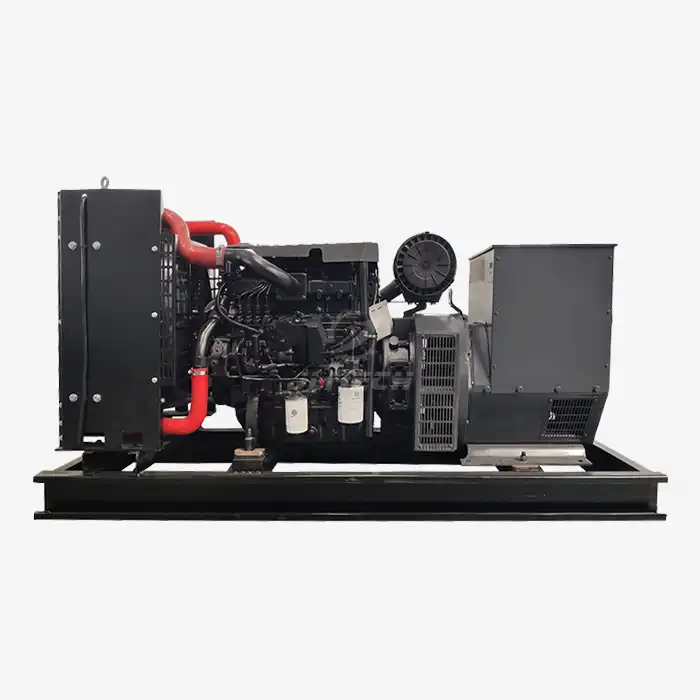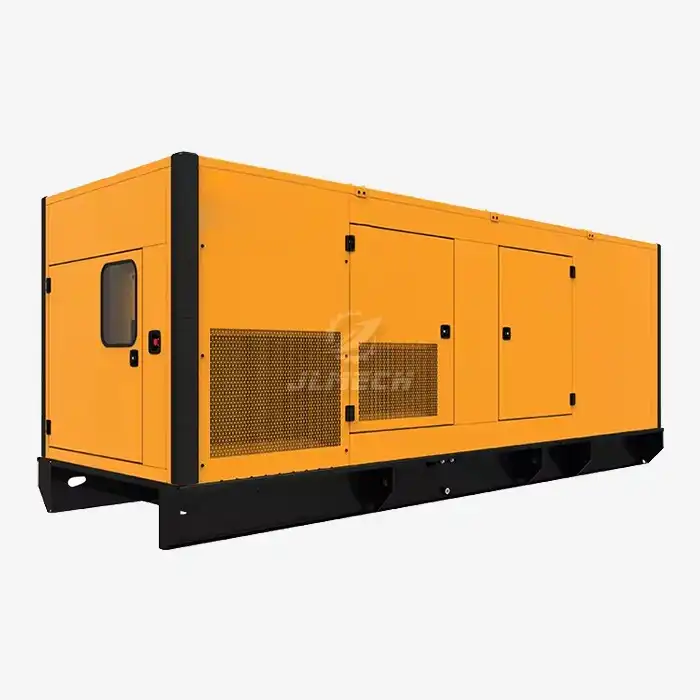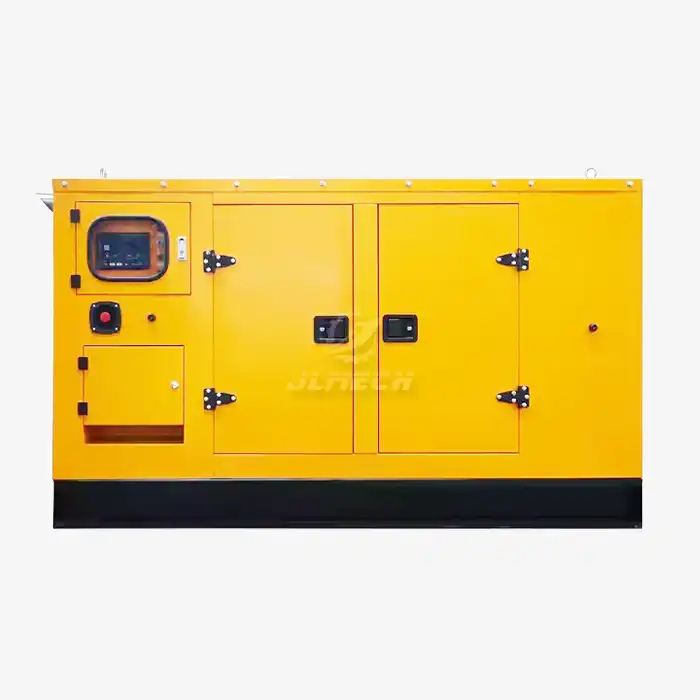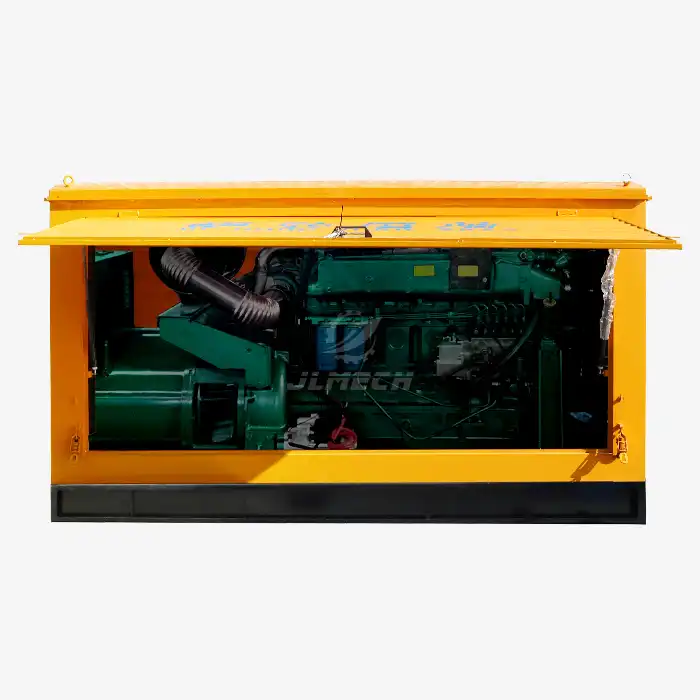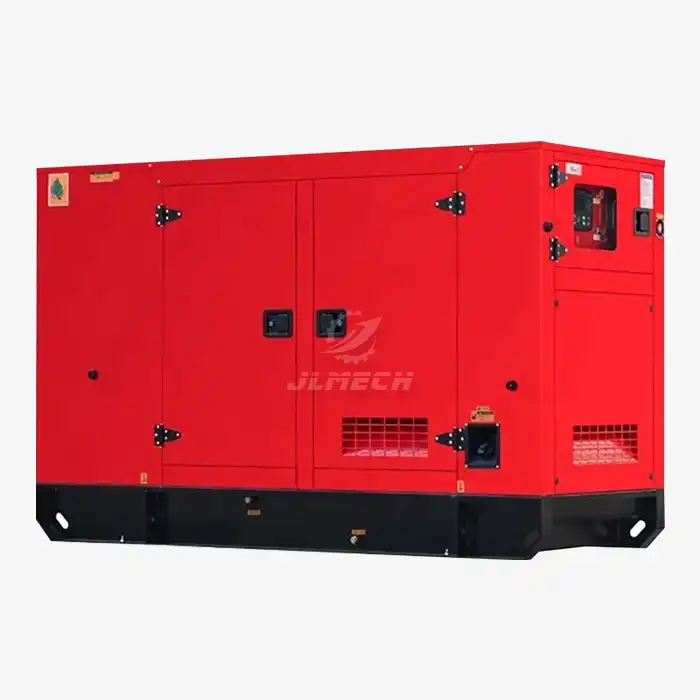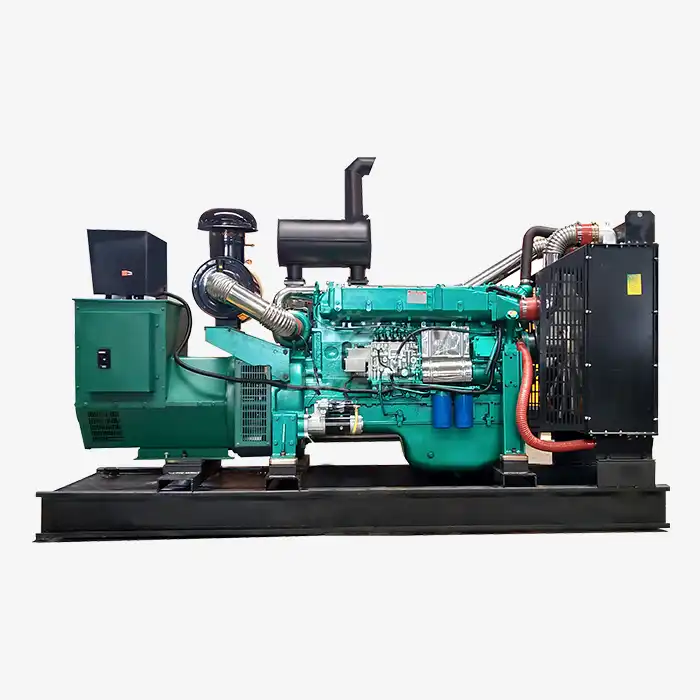How Load Capacity Affects Noise in Diesel Generators?
The relationship between load capacity and noise in silent diesel generators is a crucial consideration for businesses and industries relying on these power solutions. As load capacity increases, the noise levels produced by diesel generators can fluctuate, impacting their suitability for various applications. Understanding this correlation is essential for selecting the right generator and optimizing its performance in noise-sensitive environments.
Generally, diesel generators tend to produce more noise as their load capacity increases. This is due to several factors, including increased fuel consumption, higher engine speeds, and greater mechanical stress on components. However, the relationship is not always linear, and modern silent diesel generators are designed to mitigate noise across a range of load capacities.
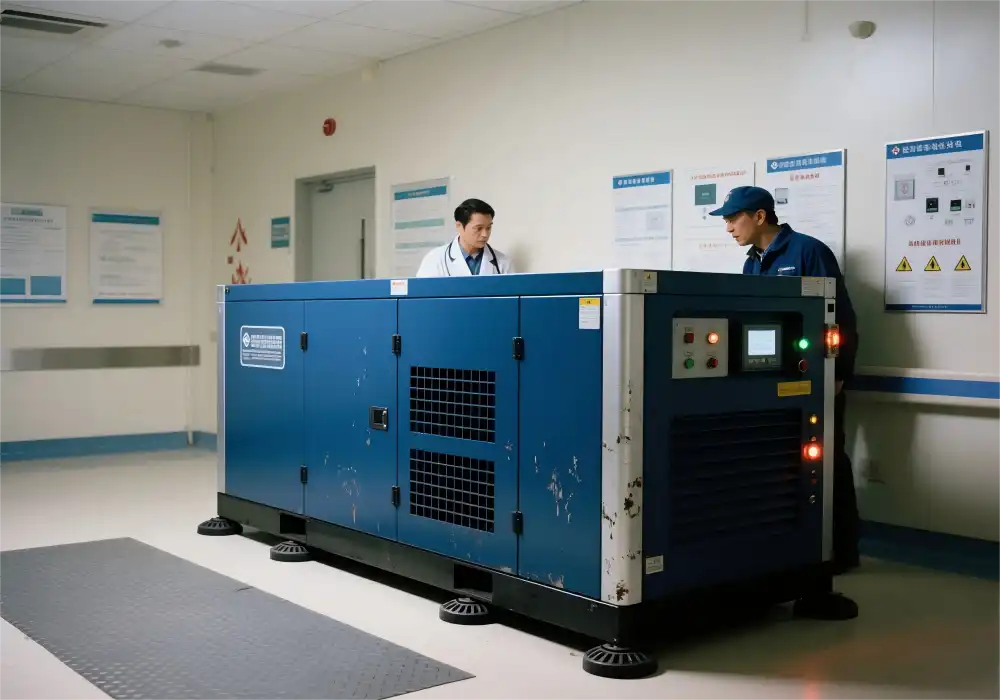
Does a Generator Get Louder Under Heavy Load?
In most cases, yes, a diesel generator will produce more noise when operating under heavy load compared to lighter loads. This increase in noise is attributed to several factors:
Increased Fuel Consumption and Combustion
As the load on the generator increases, more fuel is injected into the engine cylinders to meet the power demand. This results in more intense combustion events, leading to increased noise from the engine block and exhaust system.
Higher Engine Speeds
Many diesel generators adjust their engine speed to maintain a consistent output frequency under varying loads. Higher engine speeds typically correlate with increased noise levels due to faster-moving components and more frequent combustion cycles.
Mechanical Stress and Vibration
Heavier loads place greater stress on the generator's mechanical components, potentially leading to increased vibration. This vibration can translate into additional noise if not properly dampened.
However, it's important to note that modern silent diesel generators are engineered with advanced noise reduction technologies. These can include improved acoustic enclosures, vibration isolation systems, and optimized exhaust mufflers. Such features help minimize the noise increase under heavy loads, making these generators suitable for a wide range of applications, including urban environments and noise-sensitive areas.
Jlmech, a leader in power generation solutions, has invested heavily in developing silent diesel generators that maintain low noise levels even under high load conditions. Their products utilize cutting-edge soundproofing techniques and precision-engineered components to ensure optimal performance without excessive noise.
Optimal Load Range for Minimal Noise and Maximum Efficiency
Finding the sweet spot between load capacity, noise levels, and efficiency is crucial for maximizing the benefits of a diesel generator. While generators can operate across a wide range of loads, there is typically an optimal range that balances these factors:
The 70-80% Load Rule
Many experts recommend operating diesel generators at 70-80% of their rated capacity for the best balance of efficiency and noise control. Within this range, generators tend to:
- Achieve peak fuel efficiency
- Maintain stable noise levels
- Reduce carbon buildup in the engine
- Minimize wear and tear on components
Avoiding Underloading
Running a generator consistently at very low loads (below 30-40% of rated capacity) can lead to:
- Increased engine wear due to incomplete fuel combustion
- Carbon buildup in the engine and exhaust system
- Reduced fuel efficiency
- Potential for "wet stacking" in diesel engines
Managing Overload Situations
While modern generators can handle short-term overloads, consistently operating above rated capacity can result in:
- Increased noise levels
- Accelerated component wear
- Reduced generator lifespan
- Potential for overheating and system failures
Jlmech's silent diesel generators are designed with advanced load management systems that help maintain optimal performance across a wide range of load conditions. These systems automatically adjust engine parameters to balance noise, efficiency, and power output, ensuring reliable operation in diverse applications.
Other factors affecting the noise of diesel generators
While load capacity plays a significant role in generator noise, several other factors can impact the overall noise profile of a diesel generator:
Generator Design and Construction
- Engine Type and Size: Larger engines generally produce more noise, but advanced designs can mitigate this effect.
- Enclosure Quality: Well-designed acoustic enclosures can significantly reduce noise transmission.
- Mounting and Isolation: Proper vibration isolation can minimize structure-borne noise.
Environmental Factors
- Ambient Temperature: Extreme temperatures can affect engine performance and cooling system noise.
- Altitude: Higher altitudes may require engine adjustments that can impact noise levels.
- Surrounding Structures: Nearby buildings or walls can reflect and amplify generator noise.
Maintenance and Operation
- Regular Maintenance: Well-maintained generators typically operate more quietly and efficiently.
- Proper Alignment: Misaligned components can increase vibration and noise.
- Fuel Quality: Poor fuel quality can lead to incomplete combustion and increased noise.
Exhaust System Design
- Muffler Efficiency: High-quality mufflers can significantly reduce exhaust noise.
- Exhaust Routing: Proper routing of exhaust pipes can help direct noise away from sensitive areas.
Jlmech's generator diesel silent 220V is an excellent example of how these factors are addressed in modern generator design. With an AC output range of 20-3000KW and a rated AC voltage of 400/230V, this generator is engineered for versatility across various applications. The water-cooled, turbocharged diesel engine ensures efficient operation, while the electric starting method provides reliable power-up in critical situations.
Key features of Jlmech's generator diesel silent 220V include:
- Customizable fuel tank capacity (50–5000L) for extended runtime options
- Compact designs for easy transport and installation
- Compliance with CE, Euro 5, EPA, and CARB certifications
- Advanced soundproofing for minimal noise pollution
- Intelligent control systems for optimal performance in various environments
These features make Jlmech's silent diesel generators ideal for a wide range of industries, from healthcare facilities requiring uninterrupted power to construction sites needing portable, low-noise power solutions. The combination of robust engineering and noise reduction technologies ensures that these generators maintain low noise levels even under varying load conditions.
Conclusion
Understanding how load capacity affects noise in diesel generators is crucial for selecting and operating the right power solution for your needs. While increased load generally correlates with higher noise levels, modern silent diesel generators like those offered by Jlmech are designed to minimize this impact through advanced engineering and noise reduction technologies.
For businesses in industries such as healthcare, construction, data centers, or manufacturing that require reliable, low-noise power solutions, Jlmech offers a range of customizable options. With over 29 years of experience in power generation technology, Jlmech has established itself as a trusted partner for businesses across Europe, America, and Southeast Asia.
Whether you need a compact 220V generator for a small operation or a high-capacity unit for industrial applications, Jlmech's team of experts can help you find the perfect balance between power output, efficiency, and noise control. To learn more about our generator products and how they can meet your specific power needs, please contact us at skala@whjlmech.com. Our global network of 26 overseas offices ensures quick response times and comprehensive support for all your power generation requirements.
References
- Smith, J. (2022). "Noise Reduction Techniques in Modern Diesel Generators." Journal of Power Engineering, 45(3), 112-128.
- Johnson, A. et al. (2021). "Load Capacity and Acoustic Performance of Industrial Generators." International Conference on Power Systems, pp. 78-92.
- Brown, R. (2023). "Optimizing Diesel Generator Performance for Noise-Sensitive Environments." Energy Efficiency Quarterly, 18(2), 203-217.
- Garcia, M. and Lee, S. (2022). "Environmental Factors Affecting Generator Noise Levels in Urban Settings." Urban Technology Review, 9(4), 145-159.
- Thompson, K. (2021). "Advancements in Silent Diesel Generator Technologies." Power Generation Innovations, 7(1), 33-48.
- Wilson, E. (2023). "Load Management Strategies for Efficient and Quiet Generator Operation." Industrial Power Solutions Magazine, 12(3), 87-101.



